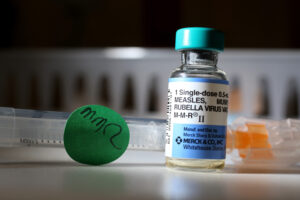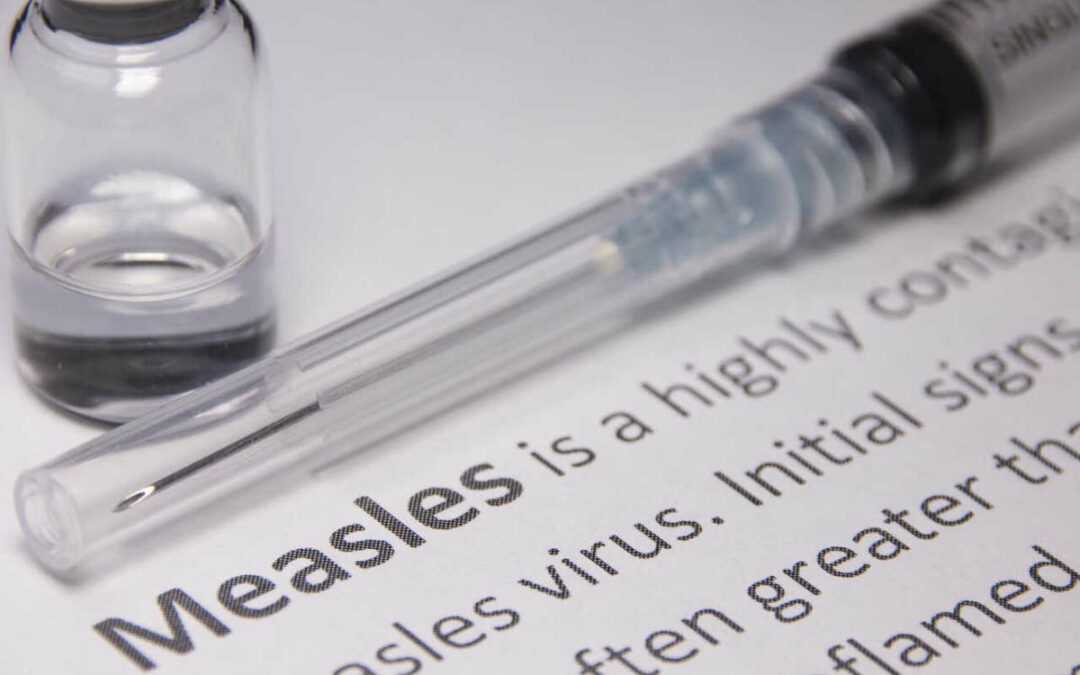The media and pro-vaccine advocates claim that because some parents are reluctant to vaccinate their children, there may be a widespread measles outbreak. A growing number of parents are having doubts about vaccinations, and some of them refuse to vaccinate their kids at all. According to certain surveys, one in six parents—four times more than in 2019—truthfully opposes vaccinations for their children. More Canadians now believe that parents, not the government, should determine whether or not their children receive vaccinations.
But are the hazards to our children a result of our over-confidence in the vaccine industry or of the reluctance of some parents to vaccinate?
The vaccine industry claims that all vaccines are effective and safe, that they have saved many lives, and that our children require them. But none of these assertions are supported by any concrete evidence. They resemble commercials more than genuine scientific research. They further claim that measles is a serious disease that can harm our children and that it might be eradicated if everyone had the vaccination. However, the data also doesn’t entirely support these assertions.
A Childhood Rite of Passage
Before the vaccine was developed in 1963, the majority of children contracted the measles. It affected almost every child. It entailed remaining at home and receiving parental care. They even produced a television program called “The Brady Bunch,” which extolled the virtues of having the measles. Older people who were not vaccinated wonder why the measles is causing such a stir and anxiety these days.
For those who are only familiar with measles from pharmaceutical industry advertisements, the illness is characterized by an all-over rash, fever, stuffy nose, cough, and pink eye. It is roughly a week long. Measles is easily shared, and almost all children had the disease prior to vaccination.
The Measles Vaccine
When the measles vaccine was first introduced in 1963, the promise was that the disease will disappear by 1967 and that a single dose would provide lifelong immunity. However, as we have discovered, none of these claims are accurate. Because the vaccine does not provide lifetime immunity, additional injections are recommended. Measles epidemics persist even in cases where everyone has received vaccinations. Despite the fact that measles has been eradicated for almost 60 years, the disease still exists.

When they advocate for vaccinations for everyone, they rarely discuss the consequences—namely, what we lose out on. The lifelong immunity to measles contracted spontaneously is a fact that is rarely mentioned. Additionally, mothers who receive the vaccine do not give birth to newborns with strong antibodies, which puts those babies at higher risk during the first few months of life.
They also fail to emphasize that measles wasn’t as dangerous as they portray it to be before to the vaccination. Even before the vaccine was developed, 98.5% fewer individuals died from the measles. It’s not really honest to refer to measles as a “killer disease”!
Is the Measles Vaccine Safe?
When the media and vaccine manufacturers claim that the measles vaccination is “safe,” they are not giving the complete story. As of May 31, 2023, the US had received over 109,499 complaints of adverse vaccination responses, including 547 fatalities.
Reportedly, less than 1% of these adverse reactions are actually recorded, according to a US Health and Human Services research. Thus, the number of injuries and fatalities may perhaps be 100 times higher than what is now known. So, 54,700 deaths and 10,949,900 adverse responses seem safe? When compared to something like a sugar tablet, the safety of the measles vaccine has actually not been demonstrated.
There is a wealth of evidence suggesting that the MMR vaccine, which protects against measles, mumps, and rubella, may cause brain damage in certain children and may even trigger autism in those administered before the age of three. With over 1 in 36 children receiving a diagnosis, autism is becoming more widespread. But measles seems to be receiving more attention in the headlines than autism.
The measles vaccine, according to highly experienced physician Dr. Richard Moskovitz, negatively affects our immune system. It impairs our immunity and may possibly make us more ill than we would be if we had gotten the measles normally.
Measles, mumps, and rubella are included in the MMR vaccine, which has been shown to cause brain damage in certain children and possibly even autism in those administered before the age of three. As more than one in every 36 children receive a diagnosis, autism is becoming more prevalent. Unfortunately, it appears that autism is not as important to the headlines as measles.
Prof. Richard Moskovitz, an expert physician, claims that the measles vaccination adversely affects our immune system. In certain cases, it can even worsen our illness from a genuine measles infection by weakening our immune system.
The Rise of Vaccine Hesitancy
The media and the vaccine business want us to believe that everyone is at risk from being cautious when it comes to vaccinations. However, our perspective at Vaccine Choice Canada is different. We believe it is appropriate for parents to inquire about the safety, effectiveness, and necessity of immunizations. In actuality, the majority of diseases that affect us today are caused by malfunctioning immune systems. One of the most effective ways to alter our immune systems is through vaccination, and once you have one, there is no turning back.
The vaccine industry makes diseases sound scarier than they really are, like with measles. But the truth is, in places like Canada, serious harm or death from measles is extremely rare. Even experts like Neil Rau, who studies infectious diseases, and Dr. Richard Schabas, who used to be in charge of public health in Ontario, say the worry about measles is blown out of proportion. They say Canada might only see a measles death once every hundred years or so.
The World Health Organization says being cautious about vaccines is a big problem for global health. But we think it’s just parents being careful and finding out that the vaccine industry’s promises about vaccines being safe, working well, and being necessary aren’t always true. And that’s what the vaccine industry is worried about.








